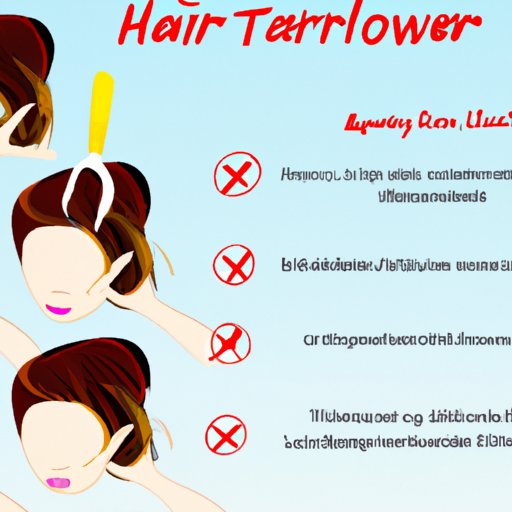Table Of Content

Talk to your healthcare provider if an abnormal amount of your hair is falling out. You may need to see a dermatologist (a doctor specializing in skin, hair, and nails) who can tell you whether you are experiencing hair shedding, hair loss, or both. See your doctor if you are distressed by persistent hair loss in you or your child and want to pursue treatment. For women who are experiencing a receding hairline (frontal fibrosing alopecia), talk with your doctor about early treatment to avoid significant permanent baldness. There is some overlap between itchy scalp and hair loss. Both symptoms can occur with the same condition, such as scalp ringworm.
How to save on hair loss drugs
However, the medication has still been used off-label for years to treat hair loss in women. More research is needed before definitive claims can be made regarding its effectiveness. Androgenic alopecia causes the normal hair growth cycle to shorten. As a result, hair doesn’t grow as long or thick as it normally would. Stress causes a large number of hairs in the active hair growth (anagen) phase to abruptly enter the resting (telogen) phase. When the hairs reenter the growth phase, the hairs that had been suspended in the resting phase are suddenly released.
Anagen effluvium
Because hair follicles hold the hair in place, when they’re compromised, hair falls out. This autoimmune disease can affect hair all over the scalp, face, and body, and in some cases, it can cause total hair loss. It’s estimated that as many as 6.8 million people in the U.S. are affected by alopecia areata, affecting people of all ages, genders, and ethnic groups. Radiation therapy can also cause hair loss by damaging the hair follicles. The radiation dose can determine how much hair is lost or how permanent the hair loss is.
Hair-Loss TikTok Offers Community, and Dubious Recommendations - The New York Times
Hair-Loss TikTok Offers Community, and Dubious Recommendations.
Posted: Wed, 13 Dec 2023 08:00:00 GMT [source]
Stress
A common cause of this imbalance is polycystic ovary syndrome (PCOS). It leads to cysts on a woman’s ovaries, along with other signs and symptoms, which can include hair loss. Stopping some types of birth control pills can cause a temporary hormonal imbalance.
What’s The Most Common Cause Of Female Hair Loss?
Can Retinol Help With Hair Loss? - InStyle
Can Retinol Help With Hair Loss?.
Posted: Mon, 15 Apr 2024 07:00:00 GMT [source]
This usually happens because of radiation treatment or chemotherapy. You might notice your part is getting wider or that more of your scalp is poking through your ‘do. With minoxidil, you might also see hair growing in places other than your scalp (cheeks and forehead, for example). Wash your face after you apply minoxidil and make sure you avoid other areas when you apply it.
When women go through menopause, they lose the hair protection estrogen once offered, Dr. Rassman says. When the relationship between estrogen and testosterone changes, a condition called age-related hair thinning can occur. This happens in mostly post-menopausal women, but some men can experience it as well if their hormone levels change with age. Minoxidil (Rogaine) is a topical medication (the type you apply to your scalp) approved by the FDA for female pattern hair loss.
Alopecia (hair loss) is caused by a disruption in the body's hair production cycle. It can have several causes, some of which also cause an itchy scalp. Only about 1 to 2 percent of your hairs are in the catagen phase at any given time. During the catagen phase, the hair strand stops growing. Most common in men, hair can be transplanted from other parts of the body to create a fuller look on the scalp. This is not an option for autoimmune diseases or some age-related hair loss, Dr. Rassman says.
Patchy hair loss (alopecia areata)

Women are also more likely than men to experience periods of increased hair shedding due to life events like pregnancy and menopause. On the whole, it’s important that you speak with your doctor about any symptoms you’re experiencing. A dermatologist can provide a proper diagnosis, and select a personalized treatment that will help restore health to you hair and scalp.
Some types of hair loss are permanent, like male and female pattern baldness. But if you’re worried about clumps of hair in your hairbrush or in the shower drain, talk to your doctor. Factors like stress, medication, and underlying medical conditions can all aggravate hair loss.
Baldness typically refers to excessive hair loss from your scalp. Hereditary hair loss with age is the most common cause of baldness. Some people prefer to let their hair loss run its course untreated and unhidden. Others may cover it up with hairstyles, makeup, hats or scarves. And still others choose one of the treatments available to prevent further hair loss or restore growth.
Some conditions can also lead to an imbalance, where half of the hairs on the head enter the shedding telogen phase. When you wash your hair thoroughly in the shower, hairs that are already loose or disconnected from your scalp congregate near the drain. While it might look like a lot, you’re probably seeing normal hair shedding. Stress and certain health conditions may cause increased shedding. In the case of conditions like telogen effluvium that are linked to stress levels, it’s best to incorporate simple ways to relieve stress. When this happens your body may ration whatever protein is already in your body by shutting down hair growth, according to the AAD.
Hair with plenty of volume, movement, and shine is what most people consider healthy. So when you look down at the drain and see a clump of lost hair strands, it’s easy to assume that there’s a health problem causing hair loss. But some hair loss is normal for everyone and at every age. Alopecia areata is an autoimmune condition that is characterized by “round patches of hair loss on the scalp,” although it can occur elsewhere on the body, Agbai says.
Beyond that, age, hormones, stress, and even the way you style your hair can lead to hair loss. People with normal hair growth usually lose 50 to 100 hairs a day. However, if your hair is thinning or falling out in clumps, something isn't quite right. Here's how health conditions, stress, and hormonal changes can make your hair fall out—plus what you can do to regrow your hair. Regrowth continues for over a year, after which time it stabilizes.
CCCA and LPP fall under the umbrella of lymphocytic scarring alopecia. The telltale signs of these conditions are chronic inflammation of the scalp and the scarring of hair follicles, which can result in irreversible hair loss, Agbai notes. Also called Propecia, this oral medication is a very common drug prescribed for hair loss that blocks the hormone causing hair loss, Dr. Yates says. Dr. Rassman warns that this drug is not for use in pre-menopausal women, because it is well known to cause issues during pregnancy. Traction alopecia is a type of mechanical hair loss that happens when the hair follicles undergo repeated pulling or tension.











